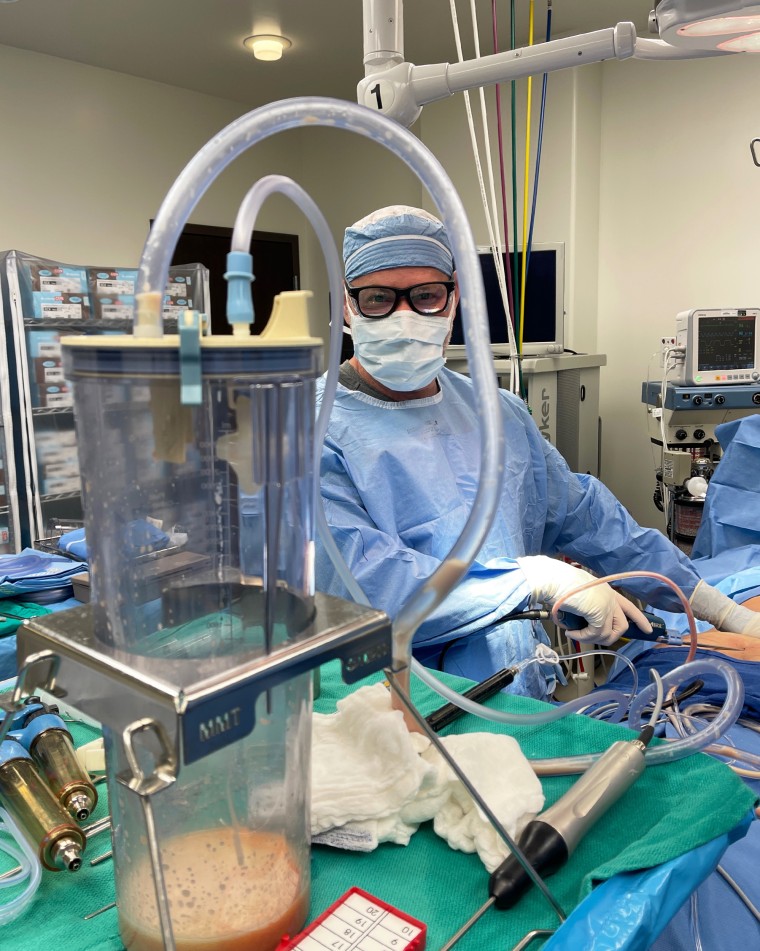Examining the Psychological and Social Elements That Drive Individuals to Take Into Consideration Plastic Surgery as a Method of Improvement
The decision to pursue cosmetic surgical treatment typically prolongs beyond plain appearances, intertwining with social and mental characteristics that warrant complete exam. Elements such as self-esteem, pervasive societal appeal requirements, and the pervasive influence of social media merge to form private inspirations for medical improvement.
The Role of Self-worth
Self-worth considerably influences a person's decision to seek cosmetic surgical treatment. Individuals with low self-confidence usually perceive themselves in an adverse light, leading to feelings of insufficiency concerning their physical appearance.

Eventually, the role of self-confidence in the decision-making process relating to plastic surgery highlights the complicated interplay between body image, individual complete satisfaction, and psychological health. Understanding this relationship is important for medical care professionals to make certain that clients are making notified choices rooted in reasonable expectations and emotional wellness.
Societal Elegance Standards
Influenced by prevalent media portrayals and social narratives, societal elegance standards play a crucial role fit individuals' assumptions of their own bodies. These standards are usually characterized by an idealized type of beauty that highlights attributes such as symmetry, youthfulness, and slimness. As these suitables are continued via numerous networks, including television, advertising and marketing, and film, people regularly internalize these messages, causing dissatisfaction with their natural look.
The implications of these societal standards expand beyond visual choices; they can influence self-esteem, psychological health, and interpersonal partnerships. Individuals that regard themselves as disappointing these criteria may experience feelings of inadequacy, motivating a need for cosmetic surgical treatment as a method of achieving societal approval. This quest is often fueled by the belief that adjusting to these ideals will improve not just physical appearance but likewise social standing and personal satisfaction.

Impact of Social Network
The effect of social beauty standards is additional intensified by the rise of social networks systems, where curated photos and idyllic depictions of beauty are ubiquitous. Individuals are frequently exposed to filtered and edited photographs, which usually depict unattainable physical attributes. This exposure cultivates a culture of comparison, leading people to evaluate their own appearance against these typically unrealistic criteria.
Social network influencers and stars often promote cosmetic procedures, normalizing the concept that surgical improvements are a sensible methods for attaining social ideals (plastic surgery rancho cucamonga). The visibility of these improvements can create an assumption that undergoing cosmetic surgical procedure is a conventional method, therefore influencing individuals to think about similar interventions as a path to enhanced self-confidence and social approval
Additionally, the interactive nature of social media enables for prompt feedback through sort and comments, better reinforcing the wish to satisfy popular charm standards. Such communications can worsen feelings of insufficiency and drive individuals towards plastic surgery as a means of getting validation. Inevitably, social networks plays a pivotal function in shaping assumptions of appeal, which considerably impacts the decision-making procedures bordering cosmetic surgical procedure.

Cultural Perspectives on Appearance
Throughout various societies, assumptions of appearance are deeply rooted in historic, social, and economic contexts, forming individuals' sights on appeal and value. In many cultures, look offers as a substantial pen of identification, affecting social condition, expert chances, and individual partnerships. For instance, in some societies, light skin is usually linked with wide range and opportunity, while others may idealize darker complexion as signs of stamina and credibility.
Additionally, standard charm standards are often perpetuated via social stories, media depictions, and family members affects, leading to varying suitables throughout different areas (plastic surgery rancho cucamonga). In Western cultures, the focus on youth and physical fitness commonly drives individuals toward aesthetic improvement, while in particular Eastern societies, more refined changes lined up with traditional aesthetics may be favored
Globalization and the proliferation of digital media have actually further continue reading this complicated these characteristics, creating a hybridization of appeal ideals that goes beyond geographical boundaries. As individuals increasingly browse these cultural stories, the stress to adhere to details look requirements can cause the desire for plastic surgery, showing an intricate interplay of social worths and personal desires. Understanding these social point of views is necessary in addressing the motivations behind plastic surgery factors to consider.
Psychological Effects of Aesthetic Surgery
Several people looking for cosmetic surgery report experiencing profound site here mental influences that can dramatically modify their self-perception and emotional wellness - plastic surgery rancho cucamonga. The need for physical enhancement commonly stems from underlying issues such as reduced self-esteem, body dysmorphic condition, or societal stress regarding appeal standards. For some, the instant post-operative stage can cause a short-term boost in positive self-image and fulfillment with their appearance, promoting a feeling of empowerment
However, these positive feelings might not be sustaining. Research indicates that while some individuals experience enhanced self-worth, others might face intense anxiety or depression if their assumptions are not satisfied. This discrepancy can emerge from unrealistic ideals continued by media representation and social narratives surrounding elegance.
Moreover, the psychological implications of cosmetic surgical treatment extend beyond the person. Relationships with family members and good friends may be strained as social dynamics shift, bring about feelings of seclusion or alienation. Inevitably, the emotional effects of plastic surgery are multifaceted and complicated, calling for cautious consideration by both potential patients and doctor to make sure enlightened decision-making and practical expectations.
Final Thought
Finally, the choice to pursue cosmetic surgical treatment is dramatically influenced by a combination of self-esteem problems, societal appeal criteria, and social perspectives on look. The pervasive reach of social networks better intensifies these stress, promoting impractical ideals that individuals often aim to acquire. Comprehending these emotional and social factors is crucial for resolving the motivations behind plastic surgery, highlighting the requirement for an extra nuanced conversation bordering beauty and self-acceptance in contemporary society.
The choice to seek cosmetic surgical treatment usually extends beyond plain looks, linking with emotional and social characteristics that warrant thorough evaluation. Ultimately, social media plays a crucial function in forming understandings of beauty, which significantly affects the decision-making visit their website procedures bordering cosmetic surgical treatment.
As individuals increasingly navigate these cultural stories, the pressure to adhere to certain appearance criteria can lead to the need for cosmetic surgery, showing a complicated interplay of cultural values and personal goals.In conclusion, the decision to pursue cosmetic surgical procedure is considerably influenced by a mix of self-confidence problems, social appeal requirements, and social point of views on appearance. Understanding these social and mental factors is crucial for dealing with the motivations behind cosmetic surgical treatment, highlighting the demand for a much more nuanced conversation surrounding appeal and self-acceptance in contemporary society.